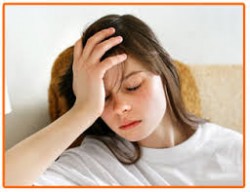
Recognizing Signs of Substance Use or Misuse in Teens: Teaching them the Truth
It’s a well-known fact that it’s important in drug and alcohol use prevention in children, to openly and honestly discuss it early on. It’s also important to discuss it frequently and keep connected to your child and teen and learn about their social lives when out of the house. Even when parents do their best to inform and be well-informed, some teens will experiment with alcohol or other drugs. It’s crucial to remember that is the lines of communication are open, that love is unconditional and that there is no judgement, they are far more likely to open up to parents if they are having problems.
While there are factors that may put a teen at risk, “there is no single reason teens use drugs.” (Alberta Health Services) Trust your parental gut if you think there is a problem, just like you would know if they were unwell or really nervous about an exam. You know your children best.
Some signs to watch for:
The biggest and most obvious sign is that they stop acting like ‘themselves’ and changes in behaviour. Keep in mind that no one sign indicates drug use; watch for combinations and patterns.
Be mindful of:
Suddenly making new friends and dropping old ones.
Moderate changes in eating habits
Moderate changes in sleeping habits
A disinterest in previously enjoyed sports or activities
Lowered school performance or attendance
Changes in physical appearance
If you suspect drug use:
First and foremost – talk to them about the changes you are seeing. Perhaps there is another very reasonable explanation, like a broken teen-heart, or some sort of angst. Make it very clear that they can be honest with you, without fear of judgement. If they share drug use or experimentation as a cause, then make use of the excellent resources we have in our community. A great place to start might be Addiction Services in Red Deer’s Provincial Building. A huge wall of reading (all free )is devoted to drug prevention and use in families and teens. Take some home and share them with your kids. And grab a few for yourself to become even better acquainted with how to handle the situation.
Another very important thing to do if you suspect of find out your child is using drugs it to teach them the truth about it. ALL the consequences. That it will not make them more popular, cooler, smarter or funnier. Find out why they want to change their natural state of mind, so as to learn about what is causing them to think about using, or using. Work together to make changes to better that. It’s not just about “saying no to drugs”; our children need to be well-informed so as to make good decisions on their own. One of the scariest things about drug use (other than death of course) is addiction. Once in the throes, a person’s like can spiral out of control and they can lose everything; friends; family support; a place to live; their education – in genera; their future. No matter how old the child or teen is, it’s still our job to look out for that precious future. Even if your teen may not be addicted, there can be no harm done by speaking with an addictions counselor; perhaps just to learn a little more about themselves.
Some may only use experimentally, some socially, and some may already have harmful involvement. If it gets to that last stage, it won’t happen overnight. Another very good reason to keep involved and know the signs!
If you think (or already know there is a problem) outside help may be the answer, rather than pushing to hard to reach an unreachable teen. Often someone else can tread where parents cannot.
Having lived in several provinces and worked with families in all of them, I can tell you with confidence that Alberta Health Services offers some of the best resources anywhere. For more information please call the 24-hour HelpLine at 1-866-332-2322 or the EPS office at 403-986-8444
Live Well


